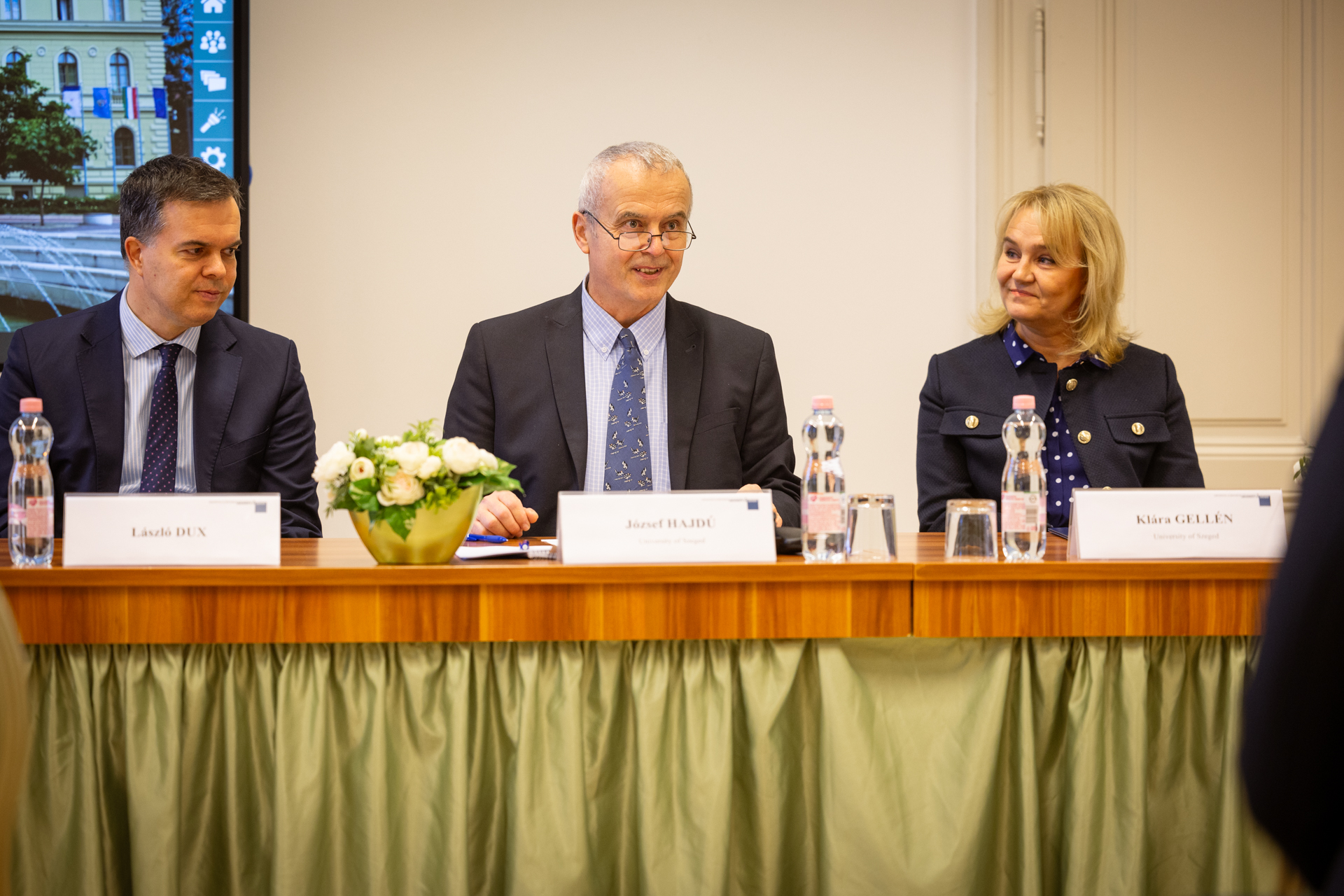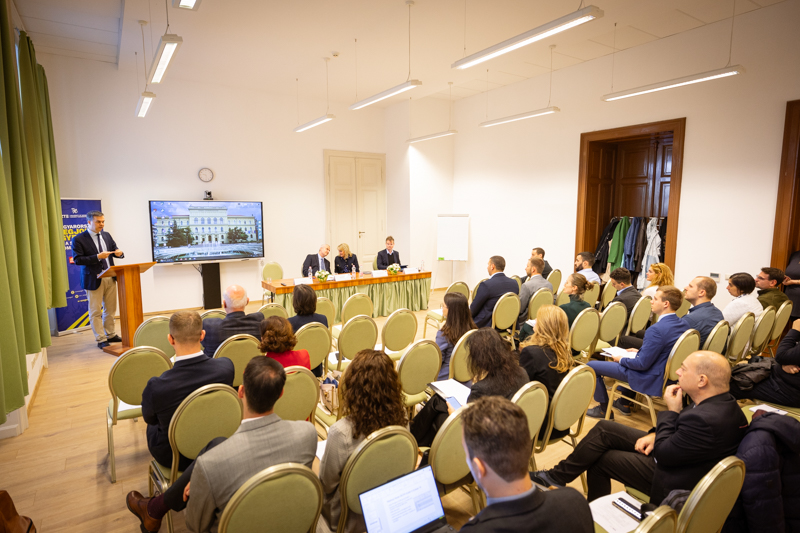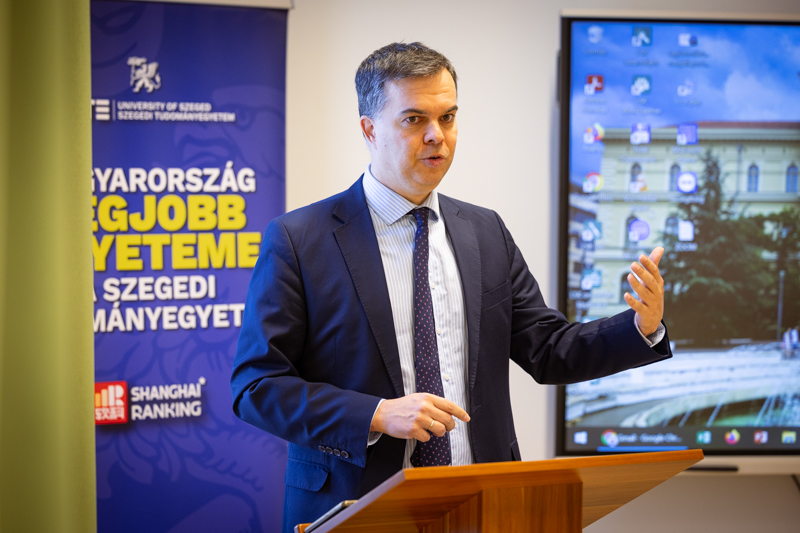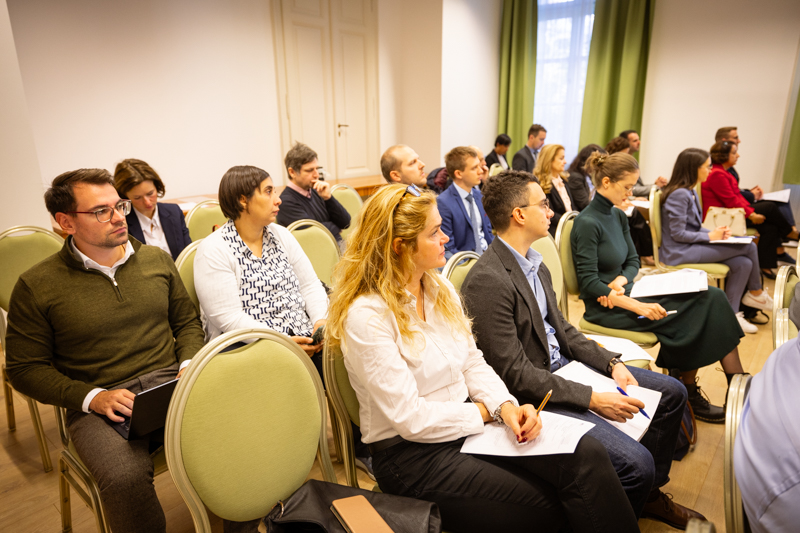
On Monday, October 21, the inaugural academic conference of the Western Balkans Competence Centre took place at the University of Szeged’s Rector’s Office, bringing together researchers and PhD students from the partner universities involved in the Centre’s international consortium.
Prof. Dr. Klára Gellén, Vice-Rector for Academic Affairs at the University of Szeged, opened the first conference of the Western Balkans Competence Centre, commending the consortium’s accomplishments and emphasizing the importance of collaboration, sharing research outcomes, discussing issues, and collectively addressing challenges. She also expressed her gratitude to the three Faculties of the University of Szeged involved in the consortium, thanking the Faculty of Law and Political Sciences, the Faculty of Humanities and Social Sciences, and the Faculty of Economics and Business Administration for their dedicated work and cooperative efforts.

The professional sessions of the conference were opened by Prof. Dr. József Hajdú, Head of the Western Balkans Competence Centre, who expressed his enthusiasm over the launch of this collaborative enterprise, warmly welcoming his international colleagues to Szeged. He also introduced the keynote speaker, Dr. László Dux, expressing sincere respect for his former PhD student, who now serves as Head of the Department for EU Common Foreign and Security Policy and Enlargement at Hungary’s Ministry of Foreign Affairs and Trade.

Dr. László Dux summarized the political and economic situation of the region. Photo by Ádám Kovács-Jerney
In his keynote speech, Dr. László Dux provided an overview of the political and economic landscape of the region. With Hungary holding the presidency of the Council of the European Union, relations with the Balkan states have come into sharp focus. Hungary has consistently aimed to act as a mediator between the European Union and the Balkan states aspiring to join the EU – a role that is particularly relevant given the significant impact of developments in this region on Hungary, and especially on Szeged.
At the one-day conference, around 30 researchers and PhD students from the eight universities in the international consortium (University of Novi Sad, University of Podgorica, University of Tirana, American College Skopje, University of Belgrade, University of Sarajevo, University of Pristina, University of Szeged) discussed issues and challenges impacting the region. Topics included the political climate in Bačka, Hungarian–Yugoslav relations between World War II and the Hungarian Revolution of 1956, and the Yugoslav authorities’ perceptions of the Hungarian community in Novi Sad.

Many presentations focused on the European integration of the Balkan region, highlighting the political and economic measures necessary for joining the Eurozone and for EU accession itself. As Dr. László Dux emphasized, integration is a lengthy and challenging process, with each country facing its own unique obstacles. For instance, Kosovo is not recognized as a sovereign state by some EU member states, while in North Macedonia, the name-change issue, along with other factors, has stalled progress. While these complexities can lead to further conflicts, Hungary remains committed to fostering progress and easing regional tensions, despite past or present challenges.
Original Hungarian text by Anna Szabó
Photo by Ádám Kovács-Jerney

